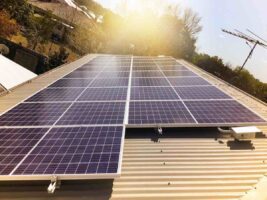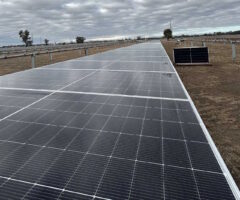Spain has scrapped a tax widely criticised for undermining solar power in Europe’s sunniest country, in the latest energy policy reversal by the country’s new socialist government which has also dimmed the outlook for coal power.
The full scale of the new government’s plans will be revealed by the delayed publication of a draft climate change and energy transition law, expected in early November, and the government’s forthcoming National Energy and Climate Plan.
The new energy outlook in Spain is being driven by Teresa Ribera, the government’s minister for ecological transition, a new position that merges energy and environmental policy. Since taking office after the Spanish Socialist Workers’ Party won last June’s election, Ribera has moved quickly to overturn a number of the previous government’s policies.
First, Spain switched sides in a European Union debate on the ambition of new EU renewable energy targets. Previously, the government had aligned with Poland against more ambitious targets, but Ribera pushed for a renewables target of more than 30% of energy use in 2030. In the end, the EU adopted a goal of 32%.
Last week’s decision to scrap the “solar tax” underlines the government’s support for renewables and should boost the country’s long-suffering solar energy industry.
Under the tax, all new and existing solar systems bigger than 10kW had to pay a generation charge, even when the electricity was consumed on site, and all rooftop installation projects faced prohibitive red tape. As well as scrapping the tax, the new decree simplified the technical and administrative requirements for installing small-scale renewables.
Next, Ribera may turn her attention to coal, where the government has already made some significant moves.
In June, Ribera hinted at a Spanish coal phaseout, mentioning a 2025 date proposed by a panel advising the government.
Then, in September, Spain flipped from opposing an EU ban on state aid for coal power plants under so-called capacity markets to supporting such a ban.
Indicating the scale of the reversal, Spain’s previous government had proposed a veto on coal power plant closures, apparently to prevent Spanish utility Iberdrola from closing its last two remaining coal power plants. That proposal was recently dropped, after failing to win a majority in Parliament.
The new government has doubled down on an expected end to coal mining, under a longstanding EU policy to end mining subsidies. On Wednesday, the government signed a “just transition” agreement with the mining regions of Spain, which would see all mines in Asturias, Aragon, Castilla and Leon close by the end of this year.
More dramatic would be a firm proposal to reduce or even phase out coal-fired power generation, which might prompt Endesa to reconsider plans to upgrade its existing power plants.
Currently, the utility plans to extend to 2030 or beyond the lives of three coal power plants, Litoral, As Pontes and units 3 and 4 at Alcudia, in southeast and northeast Spain and Mallorca, respectively.
Those life-extension investments, which will cost an estimated €400 million, are needed to bring the power plants into compliance with stricter EU pollution emissions standards that come into force in 2021.
The upgrades have been completed at Litoral, but work only recently started at As Pontes. Endesa has committed €220 million towards upgrades at As Pontes, but has only spent €16 million to date, as of June 30 2018.
The utility says it has no plans yet to delay the As Pontes upgrades. Still, the investor relations team acknowledged in correspondence for this blog that if Spain agreed a coal phaseout, Endesa would “analyse the best options.”
We’ve warned previously at IEEFA about the risk to utility investors in extending the life of ageing coal power plants beyond 2021.
In particular, these investments may be stranded by a cocktail of coal headwinds, which include coal phaseout and other anti-coal policies, a coal divestment trend, growth in renewable energy, energy market reforms that favour batteries, interconnection and demand-response, and perhaps most important of all just now in Europe, rising carbon prices.
Endesa should weigh its planned As Pontes life extension investment against these headwinds. The new Spanish government is developing a forward-looking energy policy more in tune with the rest of Europe than its predecessor, in an obvious cause for concern for coal investors.
Source: IEEFA. Reproduced with permission.








